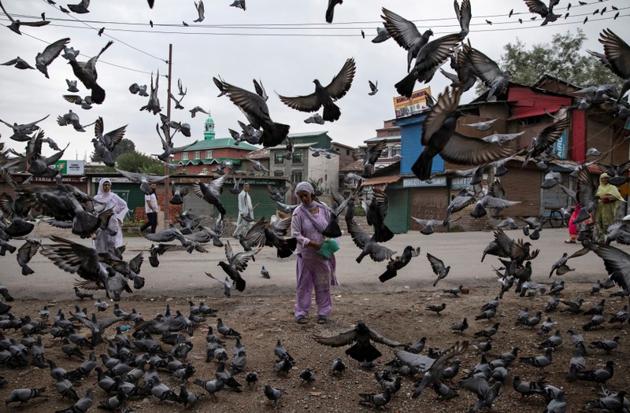The Modi government must allow politics to return to Kashmir, writes Barkha Dutt
It must integrate Kashmir, lift curbs and release leaders. Otherwise, separatists will get stronger
One month after Jammu and Kashmir’s special status was withdrawn, and restrictions were imposed in the Valley, it is time to ask: What is the government’s blueprint for its future? In the initial aftermath of a decision as disruptive as the abrogation of Article 370, the administration and the security agencies had a legitimate focus on preventing the loss of lives. The arrests of mainstream politicians could have initially been explained as a strictly precautionary measure to maintain the writ of law and the semblance of order. Thirty days later, that rationalisation cannot hold.

There may be little sympathy for the Kashmiri mainstream in the Valley. But here is the conundrum for the Narendra Modi government. The more you disenfranchise the mainstream, the more you humiliate them, the more you push them to the margins, the stronger you make the separatists, and, in turn, the militants.
On my multiple trips to Srinagar in the past few weeks, that is the one thing that leapt out at me: the schadenfreude on the street about politicians like Omar Abdullah and Mehbooba Mufti being in detention. Other than the political workers of their parties, many of whom have been targeted by terrorists for daring to take part in the electoral process, there is little or no sympathy for the humiliation of those whose home has been Centaur Hotel or Chashma Shahi and Hari Niwas for the past many days. The Bharatiya Janata Party (BJP) could either treat this as an “aha-I-told-you-so” moment, or realise how dangerous this contempt could prove to be.
Through his tears, one man I met outside a government-run phone helpline (he had spent hours trying to reach his father in Saudi Arabia) told me that the detentions “were a slap on the mainstream. Unki aukad pata lag gayee hain unko” (“They have been shown what they are worth”).
Others in the city’s downtown area, where for years every evening ends with ritualistic clashes between paramilitary personnel and protesters armed with stones, openly sniggered at the plight of the mainstream. Most of them have never voted in an election. Today, they say, their stand has been vindicated, now that even someone like Sajad Lone has been imprisoned. After Syed Salahuddin ( the Hizbul Mujahideen militant who is now in Pakistan), Lone is the first significant Kashmiri separatist who experimented with elections in 2002. He called out the Pakistani deep State and the ISI for the assassination of his father, a pro-dialogue separatist. One of his brothers is still a secessionist. His party was backed by the BJP, and Lone likened the PM to an “elder brother”. Lone is among the scores of politicians locked away by the administration, obviously under orders from the top. Srinagar’s mayor, Junaid Mattu ,was also a former separatist. Last year, he won the elections with the BJP’s backing. Mattu was allowed to travel to Delhi for medical treatment, and, while he was in the capital, I had a chance to interview him in what would be the first account of a mainstream leader who has undergone detention. He called it “suffocating and humiliating”. Two days after that interview, he was arrested again.
Watching these developments, those who never believed in the Indian Union only feel more emboldened to argue that they were right all along. The BJP promises a “Naya Kashmir” with the end of dynasty and family fiefdoms. But how is this possible with a curtailment of all political activity? What message are we sending to a potential generation of new representatives?
The mainstream politicians have done themselves no favours either. Only two of them filed habeas corpus petitions in court to fight for their release. Others have challenged the abrogation of Article 370 but let this one month lapse as if they were utterly paralysed. Perhaps they are. Else, what explains, for instance, that not one among the scores of prominent politicians under arrest, have considered a hunger strike or a fast-unto-death? After all, the moral principle of Gandhian Satyagraha is all-powerful. Templates have been set by people as varied as Irom Sharmila, Medha Patkar and Anna Hazare. I am not suggesting that this would have altered any government decisions. But it would have at least sent out a larger message about functional politics and active dissent.
The situation is so piquant today that although there are no curfew orders in place, people in urban centres like Srinagar are refusing to open shops and establishments or come out on the streets. That explains the images of empty, desolate streets that you see in the media.
Without a next move — and one that must lift the curb and normalise politics — it is the secessionists who will end up stronger.
That will be most ironic for a move that statedly set out to integrate Kashmir into the rest of India.
Barkha Dutt is an award-winning journalist and author
The views expressed are personal






